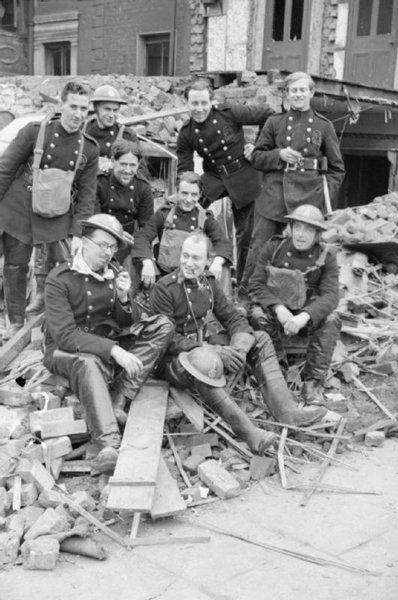
I would have to say that Henry Green is probably amongst the best of the many literary discoveries I have made over the past few years. I thought that Loving was an absolutely marvelous feat of characterisation, and though I didn’t very much enjoy Partygoing, again, the characters were all so brilliantly individualised that I couldn’t help but find myself engaged with the story being told. Caught is, rather like the other two Greens I have read, a rather strange and stifling novel in many ways, with its fluid movement between past and present and seedy, claustrophobic setting amidst the backstreets of London during the Blitz. However, Green’s ability to make his characters utterly real and utterly vital renders the difficulties of the prose completely worth grappling with. He is similar to Elizabeth Bowen in that he enjoys making the reader work, but the pleasure of unravelling the beautifully crafted sentences and hearing the voices of the diverse range of characters come alive in your mind makes it an adventure to read their novels rather than a slog. If you haven’t read either, then you are definitely missing out.
Caught is the story of Richard Roe, a well-to-do auxiliary fireman who joins the fire service in London just before the war. His wife has died, leaving him with a young son, Christopher. Shortly after his wife dies, Christopher’s son is taken by a mentally ill woman while out shopping with his Nanny, and though Christopher is promptly found and returned by the woman’s brother, the affair is made much worse by the fact that the woman’s brother turns out to be Pye, the man in charge of Richard’s fire station when he joins up to be a fireman. Subsequent relations between the men are strained, as Pye cannot recover from the shame of what his sister has done and Pye is a constant reminder to Richard of his wife’s absence. The intense emotional lives of these two very different men: one upper class, one working class, yet both desperately unhappy, form the center of a novel that shows the many ways in which individuals can become caught up in lives that provide them with little of the happiness they hoped for.
Aside from these two characters, there are plenty of other intriguing figures who populate the fire station, providing a colourful and atmospheric depiction of wartime London. Cockney Piper is the oldest fireman at the station, who has a story for every situation and no recognition of how he bores the socks off the other men. Hilly and the cooks, the station’s female representatives, form a band of three against the rest of the men, and perplex Pye with their emotional scenes and irrational prejudices. The motley crew of mostly working class, Cockney firemen, with nothing to do but sit around and wait for some real action to start, spend most of their time in the pub, finding women to sleep with, or complaining about those in charge. Their days and nights are passed in the blacked-out, sour smelling dungeon that is the fire station, and such close contact leads to the festering of personal frustrations and petty gossip, with rumours causing far more smoke than any real fire. For much of the novel, absolutely nothing happens; it is all mere anticipation. This suspension of action allows for the rich and fascinating tapestry of human relationships to take center stage, and Green’s seemingly effortless ability to capture the voices of so many different people is what makes this such a fantastic novel that simply teems with life.
There is much more than this that I can’t tell you, otherwise I’d ruin it for you, but even so, Caught is the sort of book you read for the writing, not for the story; the narrative itself is confusing, disjointed and ultimately doesn’t really go anywhere. However, the experience of being immersed completely in the underground world of wartime London more than makes up for the lack of plot, and if you want to enjoy wallowing in gorgeous prose and have your imagination set on fire, then this is exactly the book for you.
